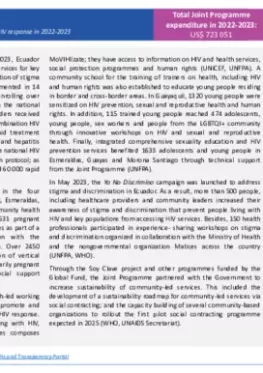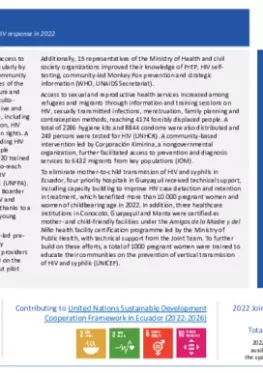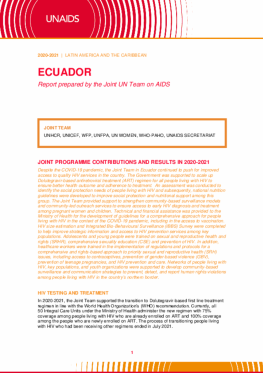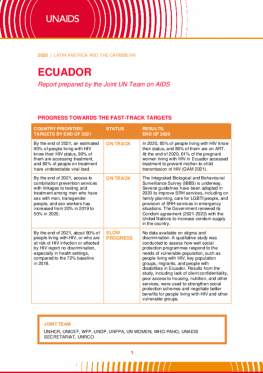|
Ecuador
With the Joint Programme’s strategic support in 2022-2023, Ecuador made considerable progress in scaling up integrated HIV services for key populations while building national capacity for the prevention of stigma and discrimination. By the end of 2023, PrEP was implemented in 14 service centres, including two community-based sites, enrolling over 1400 people from key populations. PrEP was included in the national healthcare registration platform; and 80 healthcare providers received training on the delivery of integrated and differentiated combination HIV prevention services, including PrEP, HIV self-testing, rapid treatment initiation and management of advanced HIV disease. HIV and hepatitis screening was also strengthened through the revision of the national HIV self-testing guidelines and the assisted partner notification protocol; as well as through the procurement of 500 HIV self-testing and 60 000 rapid hepatitis B and C testing kits (WHO).
Community surveillance networks were strengthened in the four provinces of the Northern Border with Colombia—Carchi, Esmeraldas, Imbabura and Sucumbíos. In Guayaquil, 200 trained community health volunteers facilitated identification and HIV testing of 631 pregnant women, and supported their referrals to healthcare facilities as part of a community-led response implemented in collaboration with the nongovernmental organization Desarrollo y Autogestión. Over 2450 pregnant women were also sensitized on the prevention of vertical transmission of HIV, while 185 people living with HIV, primarily pregnant women, children and adolescents received psychosocial support (UNICEF).





